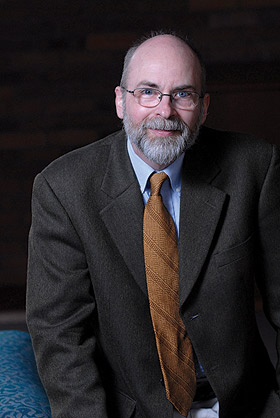 To a humanities scholar like Dal Liddle, $6,000 is a lot of money. Ask him and he’ll joke, in an imitation of Austin Powers’ Dr. Evil, about his glee at receiving such a meager amount compared to the research grants won by his colleagues in the sciences. “Six THOUSAND dollars!”
To a humanities scholar like Dal Liddle, $6,000 is a lot of money. Ask him and he’ll joke, in an imitation of Austin Powers’ Dr. Evil, about his glee at receiving such a meager amount compared to the research grants won by his colleagues in the sciences. “Six THOUSAND dollars!”
But that $6,000, in the form of a National Endowment for the Humanities summer stipend, will help Liddle test a hypothesis he’s been formulating for a while. The question: What if literary history turns out to change in some of the same ways that technological history changes? Could the history of novels and poems show some of the same patterns as the history of steam engines, microchips, and jet airplanes? Continue reading “Off to England to test a theory”
